Trip to Fazenda Monte Alegre: a unique experience in the heart of Minas Gerais
The second leg of my trip to Brazil took me to visit the Fazenda Monte Alegre, located in the district of Monte Belo, Minas Gerais, one of the most fascinating and productive regions of Brazil.
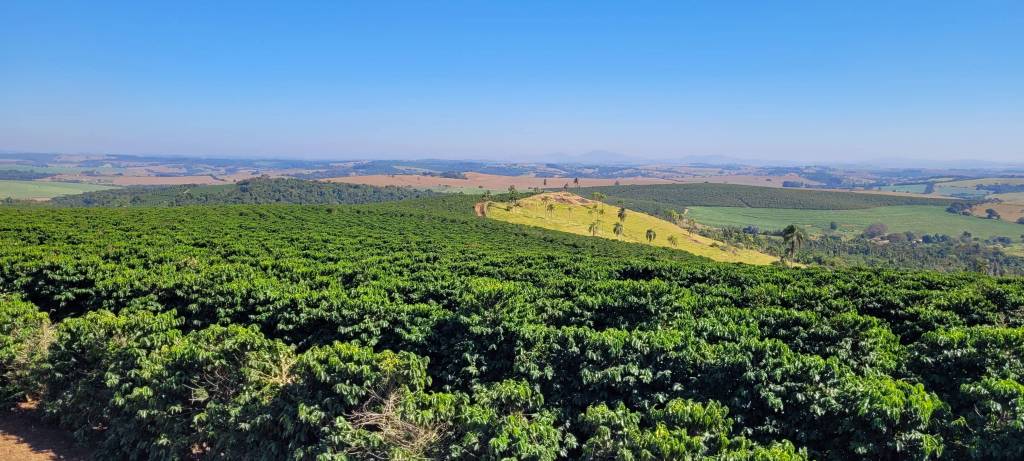
This farm is not only a producer of the highest quality coffee, but also an example of sustainability and social commitment.
We have been working with them since 1999, and every time we visit is always an extraordinary experience that enriches us both personally and professionally.
A warm welcome
As soon as I arrived, I was greeted by José Francisco, the general manager and partner of the Fazenda. José has been working here for 50 years and every time I see him, his passion and devotion shines through in his every word. I also had the pleasure of meeting Helio, another partner of the Leite family, for the first time. He has only been in the coffee business for six years, but his passion is contagious.
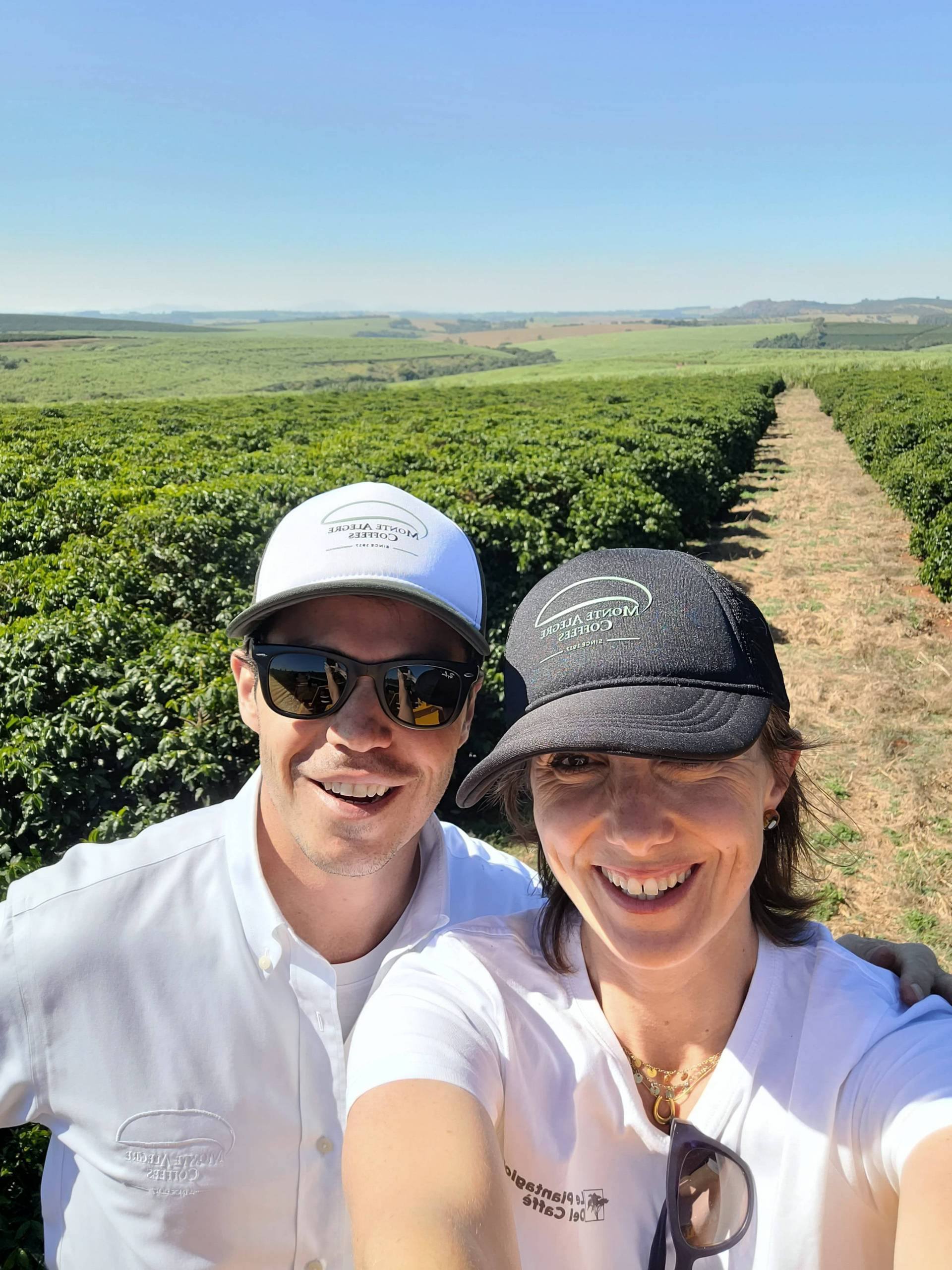
Catching up with Jorge, the quality control manager, was like catching up with an old friend. In 2012, I spent five days in his laboratory, an experience that profoundly marked my professional coffee tasting journey, which is known as cupping. This time, I also had the pleasure of meeting Paulo, the production manager, a serious and helpful man with a wealth of experience.
Sustainability at the heart of the company
Fazenda Monte Alegre is an extraordinary example of environmental sustainability.
33% of the property is a reforested protected area, well above the 22% required by law. This commitment to reforestation not only helps preserve water sources, but also contributes to local biodiversity. They have deliberately chosen to reduce the number of bags of coffee sold in order to devote more space to reforestation.
Furthermore, Fazenda Monte Alegre stands out for its innovative use of solar energy in their beneficio and rebeneficio coffee processing installations, and for its adoption of agricultural techniques that significantly reduce water consumption.
Social commitment: The Rural Schools Project
Helio proudly told me about the rural schools project that the Fazenda supports. As 32% of Brazil’s income comes from agriculture, Helio firmly believes that it is their duty to support education in rural areas. This project ensures that children living in the countryside can complete their compulsory schooling and learn not only established knowledge, but also good agricultural practices. It is a fundamental commitment to ensure a sustainable future for farming communities.
The allure of Fazenda products
During my stay, I got the opportunity to try some of the region’s traditional dishes, such as Brazilian feijoada, bolo de ananas and pudim, a delicious condensed milk pudding.
Every meal was a unique culinary experience, rich in authentic and traditional flavours.
Coffee production: an art and a science
Fazenda Monte Alegre is an example of excellence and innovation in coffee production. During my visit, I got to learn more about the different techniques and practices used to ensure the superior quality of their coffee, which is appreciated worldwide.
Diversity of coffee processing techniques
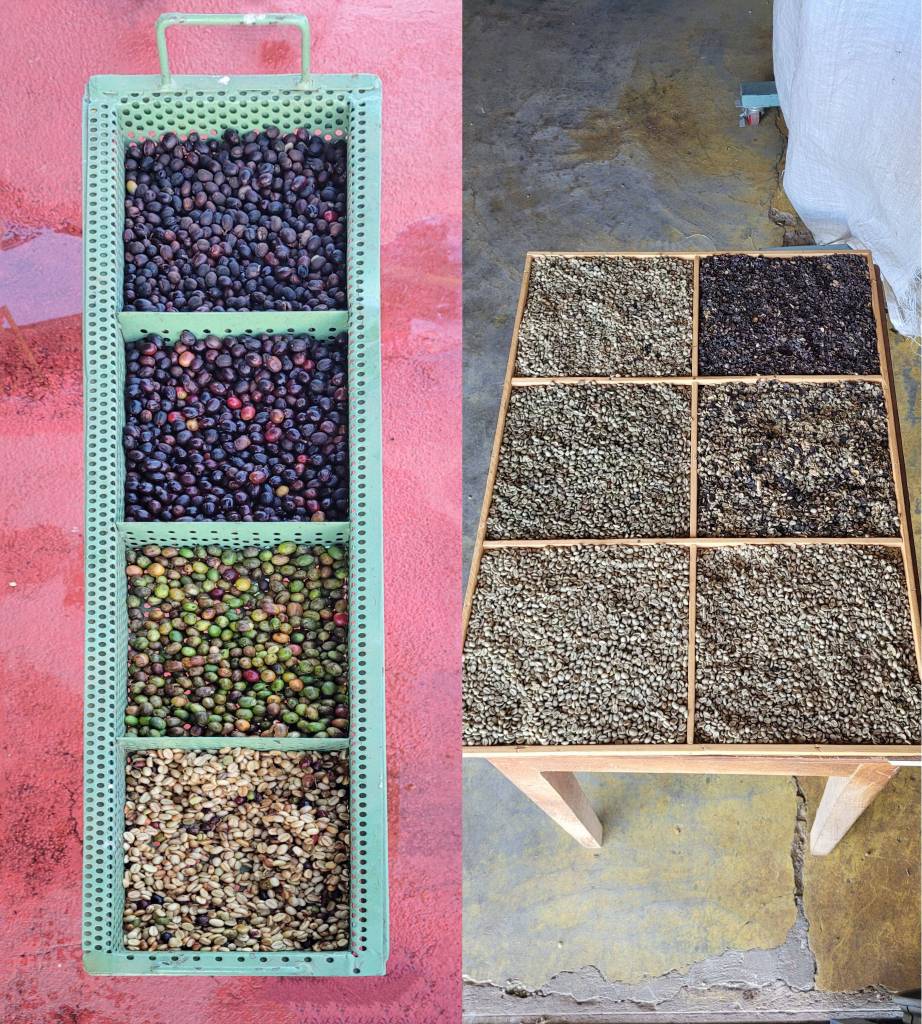
At Fazenda Monte Alegre, several varieties of coffee are produced, each with unique characteristics that enhance the flavours and aromas:
- Natural Coffee: this involves drying whole coffee cherries in the sun, which allows the beans to absorb the natural sugars present in the pulp.
- Pulped Natural (Honey): in this process, the husk is removed, leaving some of the mucilage around the beans, which gives the coffee natural sweetness.
- Semi-Washed: the husk and mucilage are removed, after which the beans are dried without prior fermentation.
- Fully Washed: this method is only available upon request and involves the complete removal of the husk and mucilage, followed by fermentation in tanks.
- Anaerobically fermented: this innovative method involves fermenting the coffee cherries in the absence of oxygen, which creates unique and complex flavour profiles.
Innovation and sustainability in agricultural techniques
The coffee plants are planted in alternating rows with a grass that helps the soil retain moisture. This method not only improves the health of the plant, but also contributes to the sustainability of the entire agricultural ecosystem.

Approximately 40% of coffee is still harvested by hand, a task performed with the help of mechanical arms similar to those used for olive harvesting in Italy. This traditional method is complemented by highly advanced mechanised harvesting, which uses air-conditioned machines to improve the comfort and safety of workers and reduce stress on the plants.
Drying processes and water savings
If possible, all coffee is dried on the patio. When conditions do not allow this, the coffee beans are transferred to the ovens once they reach 22% moisture. In the ovens, the temperature never exceeds 50°C and drying takes place slowly over 2-3 days, with the temperature being lowered at night to allow the beans to rest.
In recent years, Fazenda Monte Alegre has significantly reduced its water consumption in the coffee process, going from 4 litres of water per litre of cherries to only 0.7 litres, demonstrating its ongoing commitment to sustainability.
2024 harvest challenges and innovations
The 2024 harvest presented significant challenges due to adverse weather conditions. There were five blooms at different times, making it difficult to harvest the cherries evenly. The hot, dry weather prevented uniform ripening, resulting in smaller cherries. Despite these issues, the Fazenda continues to innovate, using grasses to retain soil moisture and adopting advanced technologies to improve crop quality.
Beneficial plants and botanical research
Fazenda Monte Alegre has three large solar-powered beneficio and rebeneficio processing plants. It also has a research area that studies 58 botanical varieties, mainly Brazilian in origin, with the aim of assessing the quality, disease resistance and productivity of the plants.
Paulo, the production manager, explained to me the importance of the green fungus Cladosporium, which grows over 900 metres above sea level. This fungus protects the coffee beans from water getting in, preventing the development of defects such as riado, a harsh, acrid flavour, which would compromise the quality of the coffee.
A special relationship
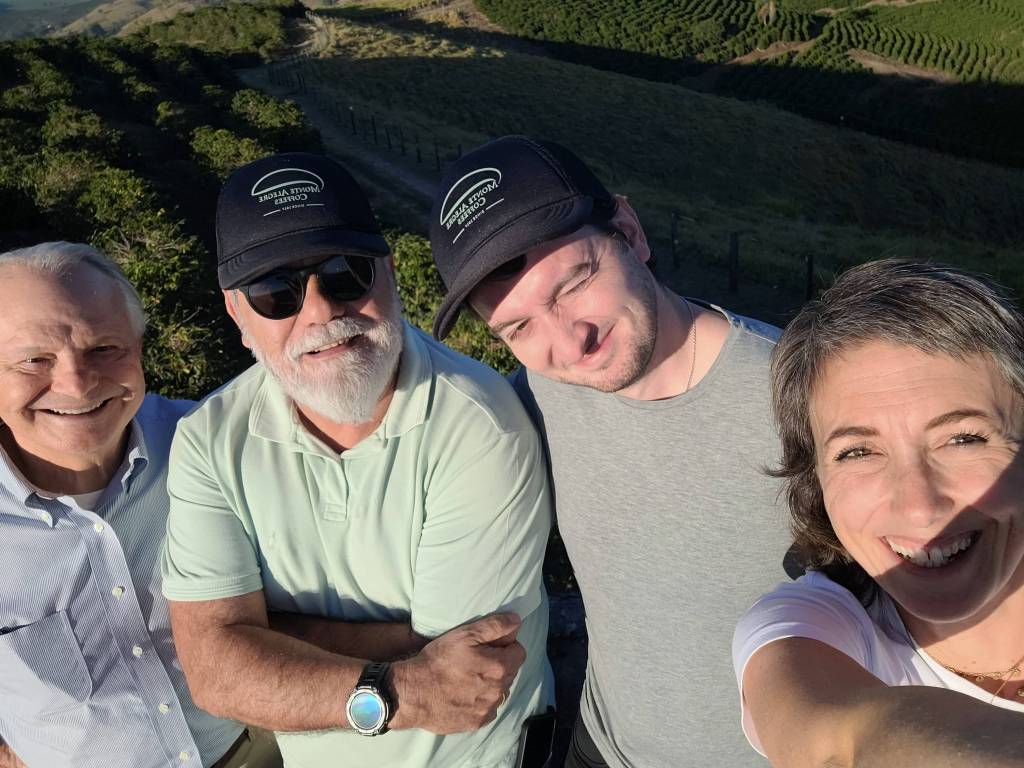
Our partnership with Fazenda Monte Alegre has lasted for over two decades, a rare achievement in the coffee industry. This long relationship is based on mutual trust and a desire to grow together. Working with coffee producers who are so far away takes perseverance, patience and energy, but we have always been willing to invest these resources because we firmly believe that the future of coffee lies in authentic human relationships.
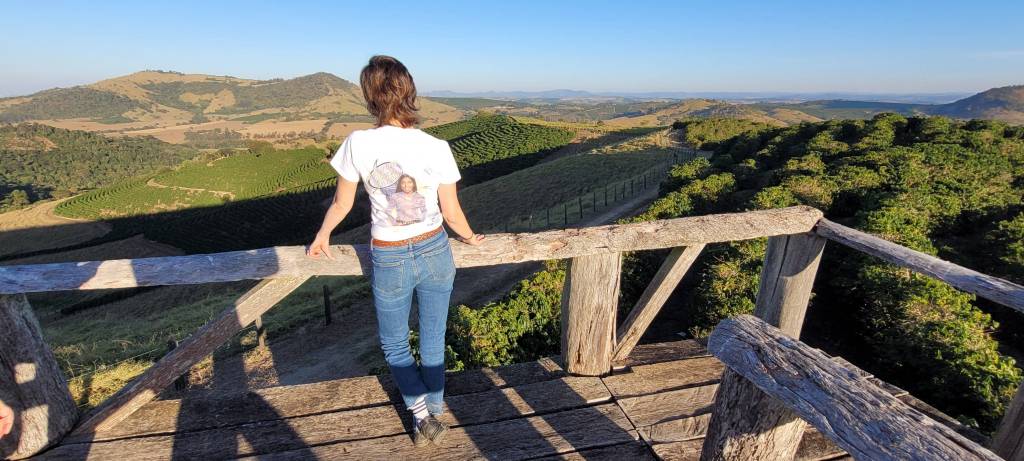
My trip to Fazenda Monte Alegre was an unforgettable experience, full of meaningful encounters, discoveries and inspiration. Every visit reinforces my commitment to sustainability and quality and reminds me of the importance of working together for a better future. Fazenda Monte Alegre is not only an outstanding coffee producer, but also a beacon of hope and innovation in the world of agriculture.






